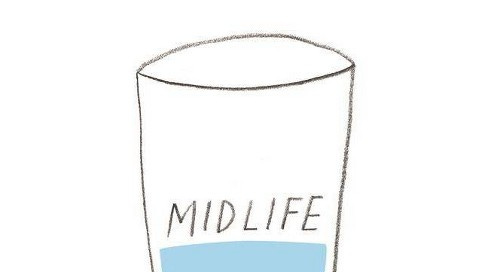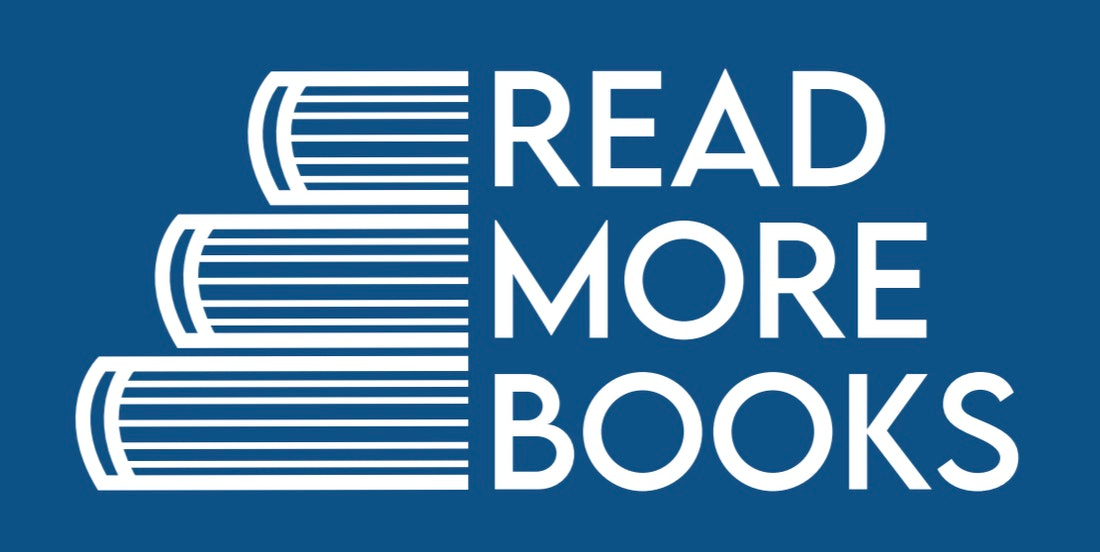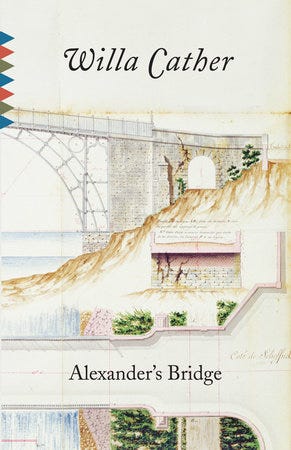What to Read Next: The Literature of Midlife
Issue #323, featuring Willa Cather and Kieran Setiya
Happy Friday, readers!
I recently turned 36 and have been a little more reflective than usual. I’m closer to 40 than 30; closer to 50 than 20. It’s somewhat sobering, sure, but also exciting — I’m glad to have found a good groove with my career and this passionate side hustle; I’m glad that my wife and I decided to have kids relatively young (in our late 20s). In general, I’m more confident in who I am than five or ten years ago.
I’m not quite at midlife yet (given our era’s life expectancy), but it’s quickly approaching.
The books featured today explore that unique position of midlife. One is a long-forgotten novel by one of my favorite authors; the other is an accessible philosophy of how to approach the middle decades of life.
Let’s jump in.
Alexander’s Bridge by Willa Cather
Published: 1912 | Pages: 130
Though she was a writer and editor for most of her life, Willa Cather’s first novel wasn’t published until she was nearly 40. It perhaps makes sense, then, that this first book is about a successful architect who has a midlife crisis.
Bartley Alexander, engineer and designer, is known for his bridges. He designs river-spanning causeways and has steadily moved up in the world during the course of his career. When the story starts, Bartley is in the middle of multiple projects and embarking on a long trip from New York to London. While overseas, he reconnects with an old flame and sets off a series of events that will forever change his life. It’s now a classic set up for a midlife story, but it never feels cliched in Cather’s hands.
Alexander’s Bridge is short and potent. The high-class cosmopolitan setting is a bit different than the frontier settings that Cather would ultimately become known for, but the themes are similar. In all her work, Cather explores meaning in the midst of hardship . . . What is resilience? What is failure? What is it that keeps us going? What are the consequences of our worst instincts?
This is the fourth Willa Cather novel I’ve read (out of twelve total) and I continue to enjoy their depth, character-building, and readability — it’s not every day you find centruy-old stories that read like they were written today. I’m excited to keep going with her catalog.
Though it isn’t nearly as recognizable as her other works, Alexander’s Bridge is absolutely worth reading and doesn’t require much of a time commitment.
Midlife by Kieran Setiya
Published: 2017 | Pages: 160
The cultural idea of a “midlife crisis” — quitting your job, buying a shiny car, etc. — is relatively new. But philosopher Kieran Setiya points out that the phenomenon is anything but new. From as early as we have records, it’s been found that people have felt an increased sense of “What’s it all about?” around the midpoint of their lives.
Even though people are living longer and longer in our modern era, many people reach this point — on an existential level — between 35 and 45. Within this age range, it tends to be the case kids grow up, parents age, careers are well on their way to either peaking or plateauing, and friends are hard to come by.
Naturally, we start to look ahead and, for the first time (for most of us), grapple with the all-too-human fear of mortality.
In this compassionate and philosophical exploration, Setiya brings us on a meaningful and often personal journey of finding out how to cope with reaching the midpoint of life.
Setiya’s conclusions largely centered around a couple of big ideas:
care about something other than yourself (“If nothing matters to you but your own well-being, if you are utterly self-obsessed, not much will make you happy.”)
live more in the present, rather than only thinking about “ends” or ultimate goals (“Our idle pastimes are more profound than we may have thought” and “there is a difference between loving someone and loving what you can do together”)
I loved this book. Everyting Setiya talked about resonated deeply to my core. He implores us to look beyond ourselves and pursue the things in life that are actually meaningful to you, rather than the things you feel like you should pursue. Plus, it’s short, readable, and eminently soul-stirring.
There’s a chance that Midlife will end up in my year-end favorites list. While this book will be most valuable for those in their thirties and forties, its concepts are broad enough that anyone with an existential bent will have no trouble getting something out of it.
Thanks so much for the time and inbox space — I deeply appreciate it!
-Jeremy






Thank you for these recommendations. As I near my 47th birthday, I’m finding that I prefer a more mature voice & tone in the books that I read. Many of the new shiny glossy books don’t speak to me anymore, which is fine now that I recognize my preferences. The best thing about books is that there’s always something for everyone.
I'm loving your focus on Cather, one of my favorite writers. It's been making me want to go back to her books. Now I want to reread this one, too. Thanks!
PS I'm 62 and feel like this is midlife! :)